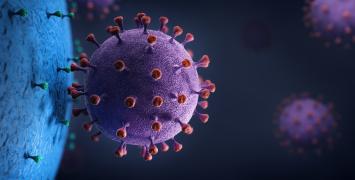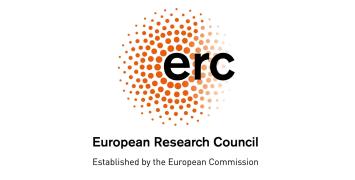Proposal evaluations and grant management – new ways of working

The coronavirus pandemic disrupted the lives and work of many ERC applicants and grantees. The crisis affected the ERC, too. Most of our staff have been working remotely for most of the time for the past two years. We have been doing our best to remain operational during this exceptional period, while ensuring the safety and wellbeing of our own staff and the people with whom we work.
Remote and on site panel evaluations
From March 2020 until February 2022, all panel evaluations of project proposals were organised remotely. Despite difficult circumstances, we were able to complete all the calls as planned. We are grateful to our panel members and applicants for their flexibility and understanding and to our staff for working in challenging conditions.
The Scientific Council has monitored closely the public health situation and regularly discussed the ways to carry out evaluation of proposals. It decided - based on the recent experience, surveys and opinion of experts - that applicants selected to the second step of the evaluation of Starting, Consolidator and Advanced Grant calls will be interviewed remotely. While interviews will be held remotely, the ERC panel members will have their panel meetings on site in Brussels as from June 2022 (StG, CoG and AdG), provided the public health conditions allow. This decision was taken in order to preserve the integrity of the ERC evaluation process while aiming at carbon emissions reduction, in line with the objectives of the Green Deal of the European Commission. The panel meeting for 2022 Synergy Grants call were first since 2020 to take place on site in March 2022. The applicants for Synergy Grants, due to the specificities of this call, will be interviewed on site in Brussels in September 2022.
Postponing the start of your project or extending duration of your project
Some grantees and their teams continue to suffer from the impact of the last two years disruptions caused by the pandemic. The ERC Executive Agency has been accommodating throughout this period, allowing for flexible start dates and extensions because of travel and work limitations imposed by Covid 19 circumstances. Such flexibility measures are still applicable for contracts that have been running or signed during the pandemic, in order to ensure that the highest quality research can go on in Europe despite all the constraints of the health crisis.
Beneficiaries (including for the holders Proof of Concept grants) that had an on-going grant or signed a grant during the pandemic may still request to extend the initial project duration up to 6 months, due to the COVID-19 situation –that would usually be decided upon favourably and in a fast procedure.
Requests to extend the initial project duration for more than 6 months due to the Covid-19 situation will be subject to a case-by-case assessment by the Agency, and may be approved based on a clear and explicit justification on the impact caused by the pandemic. These extensions will not count against another potential extension under H2020 ERC grants, which will follow the normal rules and procedures. The ERC will follow the same flexible approach concerning any request to postpone the start date of projects.
The beneficiaries of ERC funding must bear in mind that - based on the relevant rule in the Work Programme - an extension may have an impact on the eligibility for future submissions. This rule states that “a researcher participating as Principal Investigator in an ERC frontier research project may not submit a proposal for another ERC frontier research grant, unless the existing project ends [According to the duration of the project fixed in the previous frontier research grant agreement] no more than two years after the call deadline”.
ERC grantees and their host institutions are invited to inform their usual counterparts in the ERC's scientific and granting departments about any relevant problems they face. We are collecting and analysing these requests and information. Please also consider consulting the FAQs for beneficiaries of the Horizon 2020 Programme to find adequate solutions using the flexibility provided by the grant agreement.
Flexibility on teleworking and time commitments
The ERC has introduced maximum flexibility on the eligibility of personnel costs, in particular on teleworking costs. The ERC grantees should keep a high standard of supervision and abide by the policy of their employer on teleworking.
Regarding the time-commitments of ERC grantees, the normal rules of the grant apply. However, the time spent on teleworking from outside the EU or the Associated Countries, if the ERC grantee was unable to return to the EU or the Associated Countries due to the pandemic, may count as time spent in the EU or the Associated Countries only for the percentage of work time devoted to the ERC project. The ERC Executive Agency must be notified about such specific arrangements.
Maximum grant amounts
Despite the various flexibility measures put in place to mitigate the impact of COVID-19 crisis, the EU financial contribution to the project cannot be raised. The ERC has no resources to satisfy the requests of ERC grantees to provide additional budget e.g., to extend the contracts of the personnel involved in the implementation of projects. The maximum grant amount indicated in Article 5 of the Horizon 2020 Model Grant Agreement cannot be increased. The additional personnel costs arising from the extended grant duration can only be funded within the defined EU financial contribution.
Reorienting your project to COVID-19
Several grantees have contacted the ERC to enquire about the possibility of addressing COVID-19-related problem in their ongoing project. ERC grants continues to make it possible for researchers to adjust their projects, provided that the changes are scientifically justified and broadly relevant to the proposals’ original aims. If you are considering such a change, please contact your usual counterparts in the ERC Executive Agency, so we can see how best to support you and guide you through the process.
Along the same lines, should your ERC project result in any outcome that may be beneficial in providing solutions to COVID-19 crisis (e.g., structural and molecular mechanisms, host-pathogen and/or species interactions, new diagnostic and therapeutic avenues, AI and medical devices, epidemiological aspects, societal behaviour and impact), please do not hesitate to inform us.
We are continuing to monitor the situation closely and will provide further information as necessary to grantees and applicants. We invite you to consult this website and our social media accounts regularly for updates.





